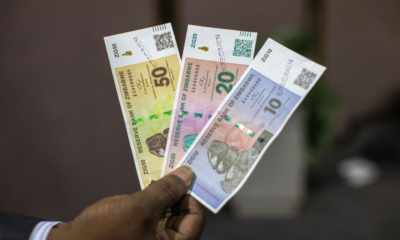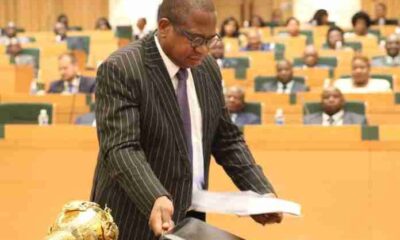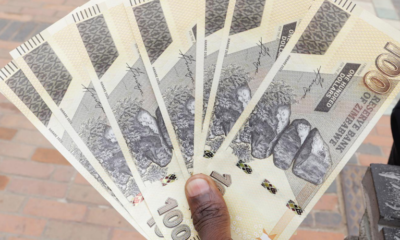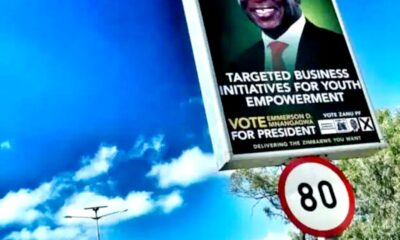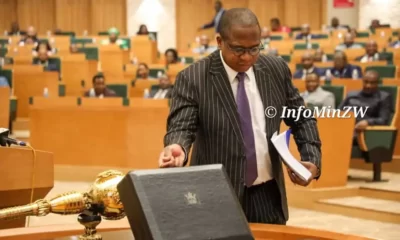SCHOOLS officially opened on Monday in what was supposed to be a positive on the part of learners who had gone for months without classes, but the situation on the ground paints a picture of continued idleness and hopelessness.
KUMBIRAI MACHINGURA/ AYESHA CHIDEMBO
A snap survey by The NewsHawks, which included visits to dozens of schools and interviews, showed that the government failed to address critical issues, including teachers’ incapacitation before calling for the opening of schools.
Consequently, idle students, most of whose parents and guardians cannot afford to pay foreign currency fees for extra lessons, have now been exposed to drug and sexual abuses.
This was the situation at several schools in Harare’s Highfield, Warren Park and Houghton Park suburbs as.well as Chitungwiza, among other areas. At Seke 3 High School in Chitungwiza, students were seen milling around the school grounds or roaming the streets as they had nothing to do as their teachers were in a no-show.
The situation was similar at other schools, with those interviewed say[1]ing teachers, who are paid an average ZW$21 000 a month, demanding United States dollar payments from students for extra lessons. “Since January, some of us have been attending extra lessons and our teachers insist we should continue paying US$5 per week.
This is despite having paid school fees and supposed to attend lessons at school,” a Form Four student at the school said.
“The teachers argue that we come to their homes for extra lessons as they cannot afford to come to school. They want us to ‘push the syllabus’ which they say is better as we are already behind since we are writing our final examinations in November.”
A parent said teachers were making use of social media platforms to teach pupils for an extra fee, an indication that school opening was a non-event. “I have two daughters, Grade One and Six and we have realised that the teachers are making use of social media platforms, mainly WhatsApp to conduct lessons. They use the WhatsApp platforms to send work throughout the week that is then submitted on Fridays at school for marking,” the parent said.
“Obviously we pay for it, but my worry is on those less privileged children who cannot afford the money. What will happen to them? The economy is not performing well and sometimes we even struggle to bud[1]get for extra lessons, online lessons and all. It is a crisis.”
Another parent who identified herself as Margret Tonga, a mother of three, said: “When the schools opened, we were relieved of our worries but teachers are always not around. To ensure that my child does not fall behind, I had to approach the teacher and have him conduct private lessons at his house while I pay him US$3 per week for one child.”
The Progressive Teachers’ Union of Zimbabwe (PTUZ) spokesperson Peter Machenjera said the teachers were not on strike as wrongly reported, but were just too incapacitated to attend class due to the biting economic crisis.
“What has been happening in schools for the past two days is that most teachers failed to report for duty. Contrary to what is being said in state-controlled media, most teachers have failed to report for duty in schools over the last two days because they are incapacitated. There is almost nothing going on in schools, even in those where some teachers clock in. They are simply clocking in, but not teaching because they lack motivation to do the work,” he said.
“Teachers are simply asking the government to return their salaries’ purchasing power to pre-October 2018 levels of at least US$540.”
“Teachers too want meaningful engagement between the government and teacher unions and not the current situation where the employer meets its darlings in the moribund and archaic Apex Council which has been overtaken by events,” he said.
He accused the government of choosing to exclusively meet the Zimbabwe Teachers’ Association (Zimta) while side-lining other unions, a move he said was raising eyebrows.
“Right now, the government is meeting with Zimta on its own. We don’t mind our sister organisation meeting with the government, but the timing is questionable, especial[1]ly where the government issued a threatening circular on the same day of this secret meeting,” he said.
On 8 February, a day after schools were supposed to open, the government issued a letter to provincial education directors stating that heads of offices should take immediate disciplinary action against any of their members who obstructed the opening of schools and deprived learners of their constitutional right to education.
The circular was also used to threaten teachers with suspension.
“A Press release does not obligate teachers to report for duty. The government is aware that teachers are incapacitated and should do everything possible to enable teachers to report for duty. The government should simply give money to teachers and everything will fall into place. Imagine that teachers received a salary of around ZW$20 000 on 18 January 2022, and anyone assuming that teachers were supposed to save something so that they could travel to their various stations is insane. That money they pay teachers is their children’s pocket money for one weekend,” said Machenjera.
The government had plenty of time between the end of the last term in 2021 and 7 February , 2022 to accomplish this. The government has come out guns blazing, threatening teachers now that they are genuinely presenting their grievances as before. All teachers want is a decent living wage. We don’t care if the government exports sewage or borrows from Lucifer to get that money’’, he told The NewsHawks.
“Teachers cannot afford to pay tuition for their own children, even at the schools where they teach, and yet they are expected to teach. Teachers are unable to purchase basic necessities such as clothing or pay utility bills while the government pretends that everything is normal”, said Machenjera.
Munyaradzi Masiyiwa, deputy secretary general of Zimbabwe Rural Teachers’ Union concurred, with Machenjera saying the government should meet all registered teachers’ unions and show willingness to ad[1]dress the challenges.
“As previously stated, there was no agreement and no collective bargaining. It’s a case of take it or leave it,” he said.
The government announced a 20% salary increase for all civil servants plus an additional allowance and payment of school fees for its workers, among other non-monetary incentives the employees criticised as hogwash.
The employer has been in sixes and sevens over how to deal with the cri[1]sis and initially issued threats before dangling a few incentives that have since been rejected by the majority of teachers.


